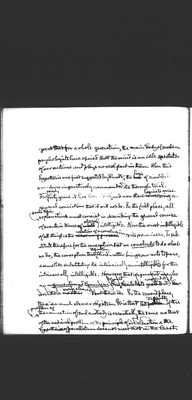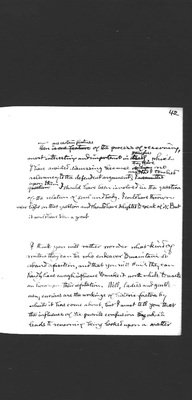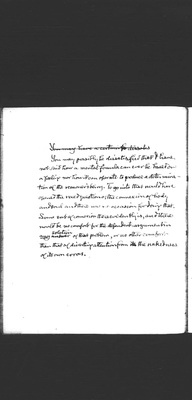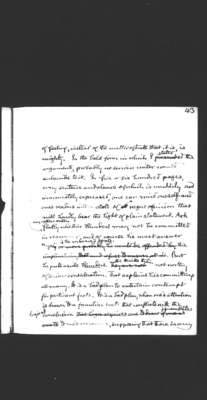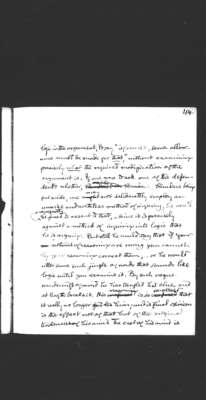Pages
51
great that for a whole generation, the main body of modern psychologists have opined that the mind is an idle spectator of our actions and plays no real part in them. When this hypothesis was first suggested by Winds, the logic of scientific procedure imperatively commanded its thorough trail. For nearly forty years it has been tried; and now there begins to rise a general conviction that it will not do. I the first place all scientific explanation must consist in describing the general course of events in terms clearly intelligible. Now the most intelligible of all things is the relation of a conclusion to its premisses. To substitute therefore for the conception that we conclude to do what we do, the conception that the action blind matter brings our acts to pass, seems like substituting the intrinsicallu unintelligible for the intrinsically intelligible. In the second place, there is a much clearer objection. It is that the difficulty of the problem of the connection of soul and body is essentially the same as that of the medieval problem of the principle of individuation + the hypothesis of parallelism does not meet that in the least.
52
42
There are certain features of the process of reasoning, most interesting and important in themselves which I have avoided discussing because they have no relevancy to the defendent arguemt; and had I touched upon them I should have been involved in the question of the relation of soul and body. I could have thrown new light on that question and should have delighted to speak of it. But it would have been a great
I think you will rather wonder what kind of writers they can be who endeavor to maintain so [ab?ed] a position, and that you will think they can hardly have enough influence to make it worthwhile to waste an hour upon their refutation. Well, ladies and gentlemen, curious are the working of historic factors by which it has come about, but I must tell you that the inflence of the puerile confusion which leads to reasoning being looked upon a matter
53
You may possibly be dissatisfied that I have not said how a mental formula can ever be based on a feeling nor how it can operate to produce a determination of the reasoners being. To go into that would have opened the vexed question of the connexion of body and soul and there was no occasion for doing that. Some sort of connexion these evidently is, and these would be no comfort for the defendent-argumention any solution of that problem, or no other comfort than that of diverting attention from the nakedness than that of diverting attention from the nakedness of its own errors.
54
43
of feeling, instead of the matter of truth that it is, is mighty. In the bald form in which I stated the argument, probably no serious writer would subscribe to it. In five or six hundred pages, every sentence and clause of which is muddily and inaccurately expressed, one can mind oneself and ones readers into a state of vague opinion that will hardly bear the light of plain statement. Ask any of these writers flatly whether blunders may not be committed in reasoning, and of course he must answer "yes" us he answered at all. But he puts aside blunders. He thinks them not worthy of serious consideration. That explains his committinh so many. It is a bad plan to entertain contempt for pertinent facts. It is a bad plan, when one's attention is drawn to a familiar fact that conflicts with the logical conclusion to one's reasoning, supposing that there is any
55
44
logic in the argument, to say "of course, some allowance must be made for that," without examining precisely what the required modification of the argument is. If one were to ask one of the defendent's whether, blunders being put aside, one may not deliberately employ an unwise and worthless method of inquiry, he would manifestly be forced to assent to that, - since it is precisely against a method of inquiring into logic that he is arguing. But still he would say that if your notions of reasoning are wrong you cannot by your reasoning correct them, - or he would utter some such jingle of words that sounds like logic until you examine it. By such vague wanderings of mind he has tangled his clue and a length breaks it. His reasoning is so perplexed that it really no longer guides him; and is final opinion is the effect not of that but of the original tendencies of his mind. The cast of his mind is
